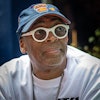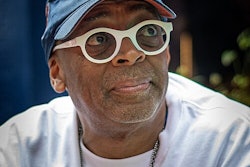Growing up in the Midwest, I never knew about historically Black colleges and universities (HBCUs). One day, during my junior year in high school, my assistant principal pulled me aside and told me something I didn’t quite understand at the time: “Will, you can have a college experience, or you can have an HBCU experience.” Neither of us knew it, but his words would forever change my life.
I was shocked and amazed when I set foot on the campus of North Carolina Central University (NCCU) for the first time. Up to this point in my life, I had never seen so many educated Black people. Students walked with a sense of purpose and integrity, and they spoke with an elegance that was foreign to me. In them, I saw future doctors, lawyers, educators, business people, philanthropists and change agents. The energy emanating from campus literally gave me chills as I envisioned myself becoming part of this community.
The landscape of success at NCCU was the direct opposite of what I observed growing up in Minneapolis. As I became involved in the NCCU community, I also began to realize my purpose. Whereas my goal in Minneapolis was to merely survive, my purpose at NCCU was to thrive. Here I had the opportunity to sit and learn from Black professors; I could walk the yard and witness Black people hosting discussions about Black liberation, politics, educational reform, stock trading and everything else under the sun.
I was amazed to learn that great scholars and activists such as John Hope Franklin, LeRoy T. Walker and Zora Neal Hurston had once taught engaging and inquisitive minds at NCCU. Change agents such as Julius L. Chambers, Maynard Jackson, G.K. Butterfeild, Herman Boone and 9th Wonder once walked the same campus I now called home. It was fascinating to learn the history of how a local pharmacist, who had a dream and a vision, created what would become one of the top HBCUs, according to US News and World Report.
Moving halfway across the country from Minneapolis to Durham, North Carolina, was a culture shock. At first, I was filled with fear about the thought of leaving my family and friends. But when I arrived at NCCU, I quickly found friends that I consider family today. I became a part of communities I never thought possible. I went from being a kid who never thought much of himself to a man who saw the world as his oyster.
During my sophomore year, I became a member of an organization called the Centennial Scholars Program (CSP), which is a brotherhood of men who come from all walks of life but who all have the same end-goal in mind: being successful. Through this organization, I found brothers who shared my ambitions — men who decided their lives would not be dictated by their pasts, but instead by what they envisioned becoming.
Our mentors were the most significant part of the organization. They went above and beyond their professional obligations. When we as a cohort struggled educationally, mentally or emotionally, they were there. When we succeeded inside and out of the classroom, they were present. When we needed a shoulder to cry on because of problems outside our control, they listened. Through CSP, I found a sense of belonging and decided higher education was what I was called to do.
Toward the end of my junior year, I started planning for life after NCCU. Up to this point, my trajectory had been leading me toward a path in law. As a child, I had envisioned myself becoming an attorney who fought for others. I imagined working day and night to ensure my clients would receive the best possible legal counsel I could provide.
But midway through my senior year something changed. At this point, our current chancellor was leaving, and I was selected to sit on the committee to pick the next leader of NCCU. Throughout this process, I began learning about the various facets of a university. It was captivating to discover how drastically different academic affairs was from student affairs, even as they depended upon one another. Similarly, I was amazed to learn that the way an institution is funded dictates how different departments are financed.
Being able to see the intricacies of such institutional mechanisms while on this search committee further encouraged me toward charting a path in the direction of higher education.
After completing two degrees at NCCU, I am now fortunate enough to not only work at the University of Pennsylvania through the Penn Center for Minority Serving Institutions, but I will also begin a new journey toward attaining my doctorate in higher education here at Penn this upcoming fall.
In many ways, I consider NCCU my Mecca. It was at this extraordinary place I learned to tap into my potential. I learned not only about myself, but also about people from all walks of life; I engaged with individuals who practiced different religions, but we knew we were all one and the same. I was mentored by great visionaries who remain paramount to me till this day. But most of all I found my purpose — and for that I will forever be grateful.
Ndeh ‘Will’ Anyu is the program coordinator at the Penn Center for Minority Serving Institutions.
- This story also appears in the June 15, 2017 print edition of Diverse.


















